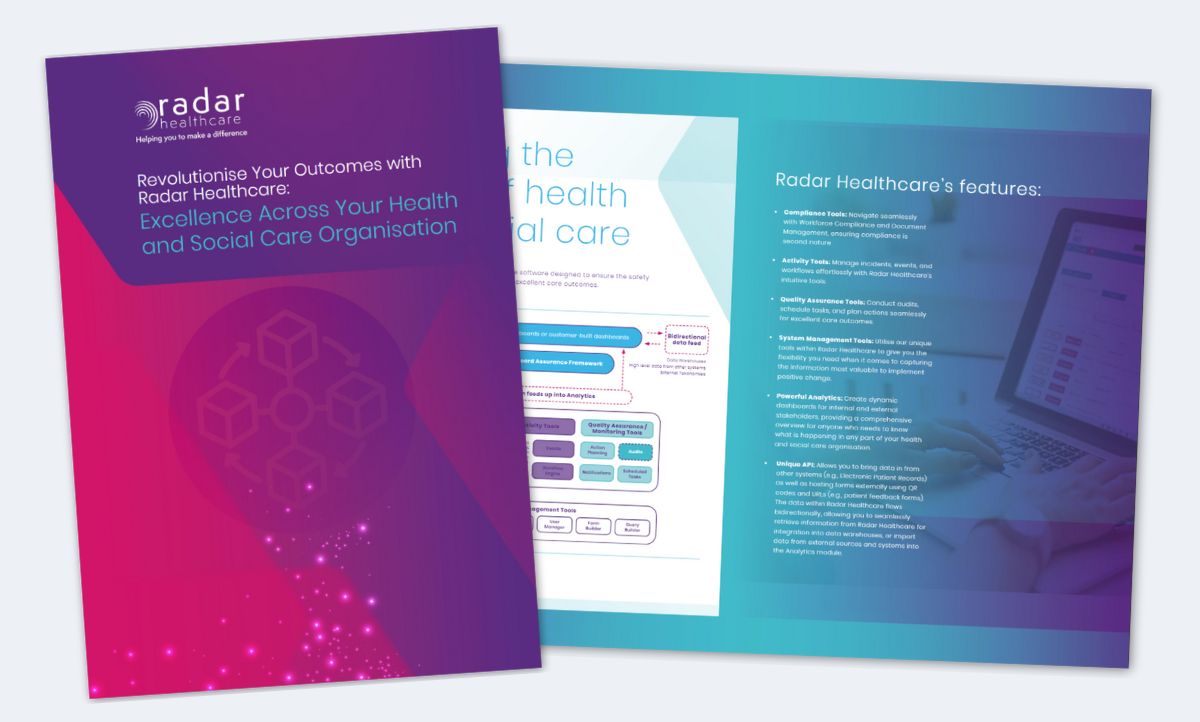Why Is Quality Improvement Important in Healthcare?
Tags:
Introduction to Quality Improvement in Healthcare – Why is it Important?
Quality improvement in healthcare isn’t just a buzzword; it’s a crucial aspect that directly impacts patient outcomes, resident care, safety, and overall healthcare delivery. As healthcare systems evolve, the need for continuous improvement has never been more crucial.
Our guide explores why quality improvement is important in healthcare, how it can be measured, and the tools and strategies that can sustain it over the long term.
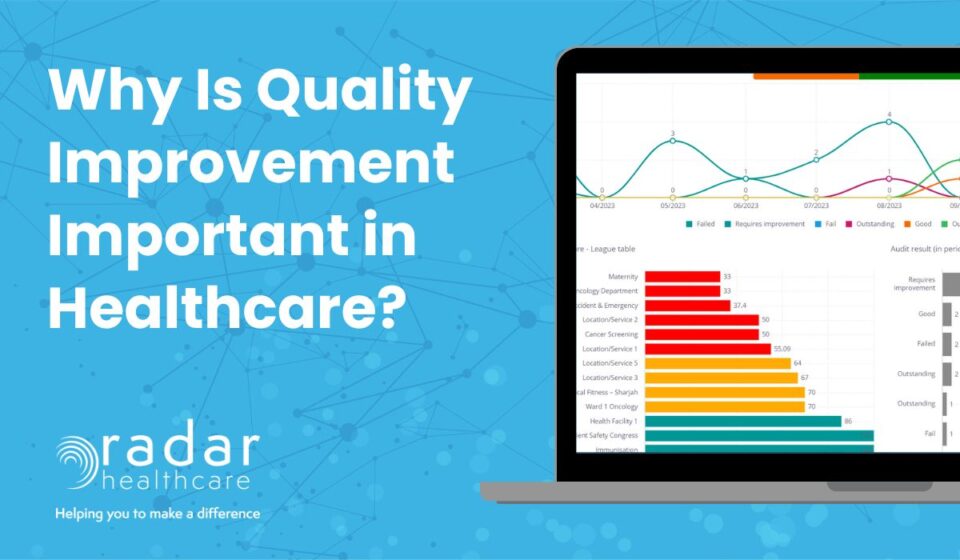
Why Is Quality Improvement Important in Healthcare?
Quality improvement (QI) is vital in healthcare because it focuses on enhancing the standard of care provided to patients. It is a systematic approach that healthcare organisations use to improve the processes, services, and outcomes of patient care. The importance of QI in healthcare is underscored by its ability to:
1️⃣ Enhance Patient Safety: Through rigorous processes, QI helps identify potential risks before they become issues, ensuring safer care environments.
2️⃣ Improve Clinical Outcomes: By systematically analysing healthcare delivery, QI initiatives can lead to better patient outcomes, which is the ultimate goal of any healthcare provider.
3️⃣ Increase Efficiency: Quality improvement can streamline operations, reduce waste, and improve the efficiency of healthcare services, leading to cost savings and better use of resources.
“We’ve been on a two-year journey to change the culture from being KPI driven to really understanding how learning can provide the highest quality of care to our residents. We’re creating a new innovative insights model and Radar Healthcare is integral to this. We want early warnings and holistic views across our homes. Having that central spine means we can start to have proper conversations around where we can develop meaningful quality improvements and the really exciting element is the insight.”
How to Measure Quality Improvement in Healthcare
Measuring quality improvement is critical to understanding its impact and ensuring that the desired outcomes are achieved. There are several key performance indicators (KPIs) and tools that health and social care organisations can use:
📈 Patient Outcomes: Measuring patient outcomes, such as recovery rates, readmission rates, and patient satisfaction, provides direct insight into the effectiveness of care.
🔍 Process Metrics: Monitoring specific processes within healthcare delivery, such as the time taken for patients to receive treatment, can help identify areas for improvement.
✅ Compliance Rates: Ensuring adherence to clinical guidelines and safety protocols is another vital measure of quality improvement.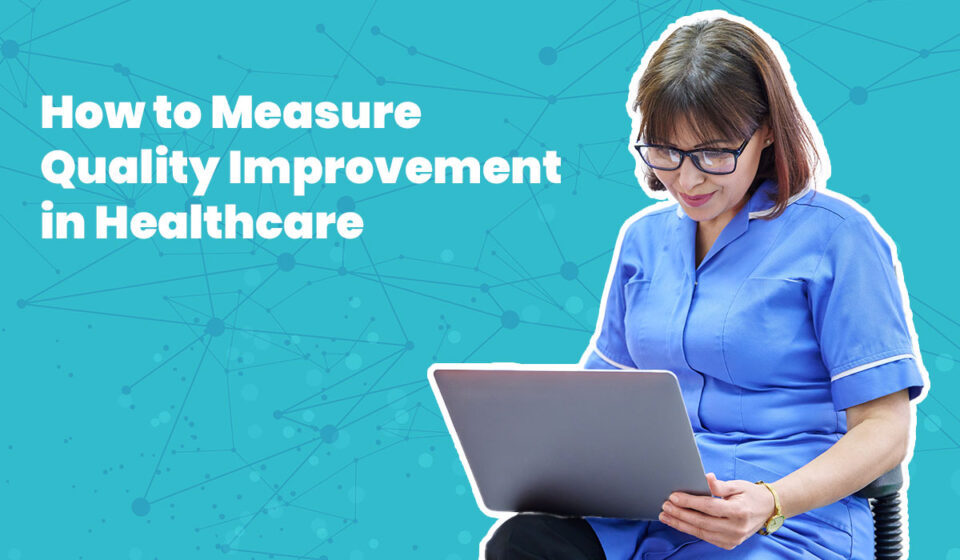
“You can't manage it if you don't measure it! The future of health and social care really has to have a strong focus on routinely collecting electronic data that is not only automated but easily displayed, interpreted, and accessible to track, monitor, and demonstrate improvements, as well as flag up risk. Adopting a proactive approach is important”.
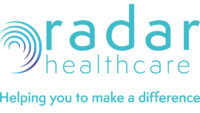
Why Healthcare Leadership Should Embrace Quality Improvement
Leadership plays a pivotal role in the success of quality improvement initiatives. When healthcare leaders are committed to QI, it fosters a culture of continuous improvement, collaboration, and accountability. Leadership engagement is crucial for several reasons:
🌟 Vision and Direction: Leaders set the vision for quality improvement, ensuring that all efforts are aligned with the organisation’s goals.
📊 Resource Allocation: Effective leadership ensures that resources, including time, personnel, and technology, are allocated to support QI initiatives.
🔄 Sustained Focus: Leadership commitment helps sustain QI efforts, ensuring that they are not just one-time projects but ongoing processes embedded in the organisational culture.

“Our partnership with Radar Healthcare is built on shared values and a clear vision to improve health outcomes for patients through proactive quality management. Together, we are passionate that by giving teams the capability to identify issues - before they impact patients - and the means to improve care, high quality care and better clinical outcomes will come as standard. We know that improving quality is not always about trying harder but is about bringing together efforts into a coherent direction of travel. We are excited by the potential of this partnership to offer organisations innovative and holistic solutions, where digital systems interact with effective processes and timely information to drive improvement for patients.”

Quality Improvement Tools in Healthcare
To successfully implement QI, healthcare organisations can utilise various tools that facilitate the process. Some of the most effective tools include:
🔄 Plan-Do-Study-Act (PDSA) Cycles: This iterative method allows teams to test and refine changes in a controlled manner before full-scale implementation.
🔍 Root Cause Analysis (RCA): RCA helps identify the underlying causes of problems, enabling healthcare providers to address them at the source.
📊 Statistical Process Control (SPC): SPC uses statistical methods to monitor and control processes, ensuring they remain within desired limits.Read on to discover how Radar Healthcare can support you with quality improvement…
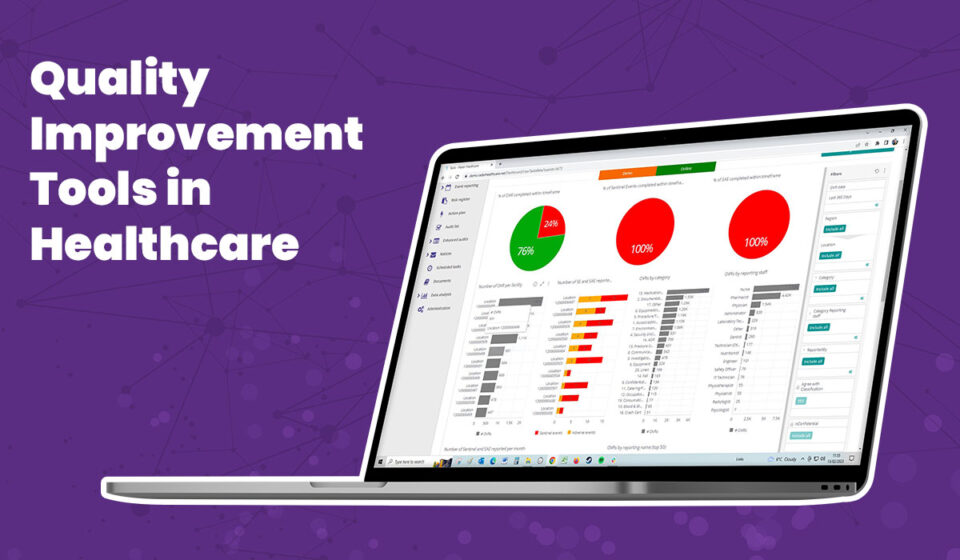
“Radar Healthcare operates on three pillars: compliance tools, activity tools, and quality assurance tools. These pillars form the foundation for a comprehensive view of quality and safety within the healthcare system, including integration with other data sources through our API adapter. With our Audit Management tool, users can seamlessly navigate audits, gain insights, and drive improvements across the entire ecosystem.”

Sustaining Quality Improvement in Healthcare
Sustaining QI efforts over time requires a strategic approach. Organisations must ensure that QI is ingrained in their culture and daily practices. Key strategies to sustain QI include:
🎓 Continuous Education and Training: Regular training programs help staff stay updated on the latest QI methodologies and best practices.
📈 Data-Driven Decision Making: Leveraging data analytics to inform decisions ensures that QI initiatives are based on real-time information and insights.
🤝 Engagement and Collaboration: Engaging all stakeholders, including patients, staff, and leadership, fosters a sense of ownership and collective responsibility for QI.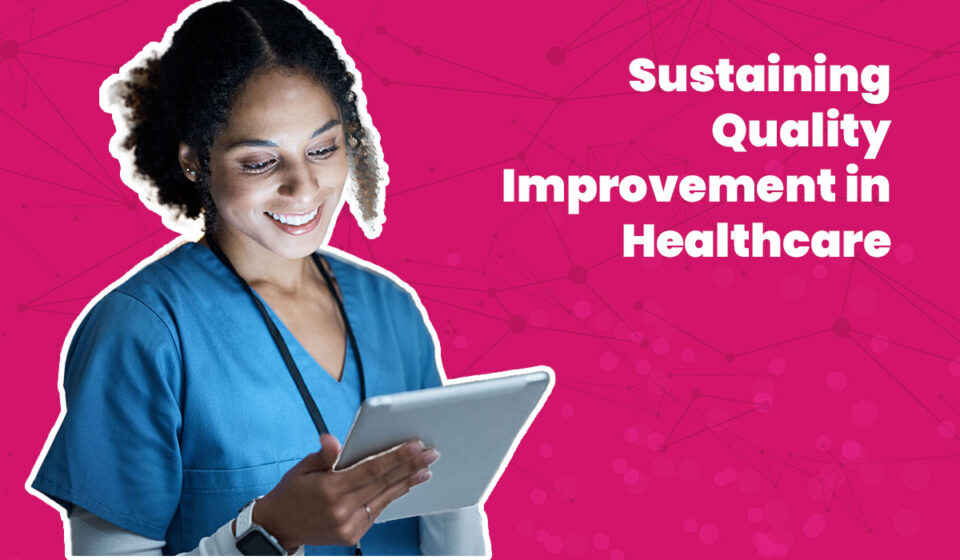
“Unlocking excellence in healthcare requires seamless, automated data integration to drive continuous improvement. Our intelligent analytics enable real-time decision-making based on data insights, which enhances patient safety, mitigates risks, ensures compliance, and improves operational efficiency. It’s the future of care delivery, right at your fingertips.”

How Radar Healthcare Can Help with Quality Improvement
Quality improvement is a challenging yet essential aspect of healthcare, and having the right tools and systems in place is critical to its success. Radar Healthcare provides a comprehensive solution designed to support healthcare organisations in their quality improvement (QI) efforts. Here’s how Radar Healthcare can make a difference:
Integrated Quality Management Systems
Radar Healthcare offers an integrated platform that combines compliance, risk management, and quality assurance tools. This integration allows healthcare organisations to seamlessly track, monitor, and manage all aspects of quality improvement from a single, user-friendly interface.
Real-Time Data and Analytics
One of the cornerstones of effective quality improvement is access to real-time data. Radar Healthcare’s intelligent analytics engine provides organisations with actionable insights, enabling them to make informed decisions quickly. This data-driven approach ensures that QI initiatives are not only reactive but proactive, helping to identify potential issues before they impact patient care.
Customisable Dashboards and Reports
Every healthcare organisation has unique needs, and Radar Healthcare’s customisable dashboards allow teams to focus in on the most relevant metrics and KPIs for their specific quality improvement goals. Whether it’s tracking patient safety, monitoring compliance, or assessing operational efficiency, our platform provides tailored reports that help leaders stay informed and take decisive action.
Collaborative Tools for Continuous Improvement
Radar Healthcare fosters a culture of collaboration by offering tools that encourage team communication and shared learning. With features that support incident reporting, root cause analysis, and action tracking, teams can work together more effectively to address issues and implement improvements.
Regulatory Compliance and Risk Management
Staying compliant with regulatory requirements is a critical aspect of quality improvement. Radar Healthcare’s compliance tools help organisations ensure they are meeting all necessary standards and regulations. Additionally, the platform’s risk management features allow for the early identification of risks, providing organisations with the ability to mitigate them before they affect patient care.
Supporting a Culture of Continuous Learning
Radar Healthcare goes beyond just providing tools; it supports a cultural shift towards continuous learning and improvement. By making data accessible and understandable, it empowers teams to learn from past incidents and successes, fostering an environment where quality improvement is an ongoing process rather than a one-time project.
Conclusion
Quality improvement in healthcare is a multifaceted and ongoing process that is essential for delivering high-quality, safe, and efficient care. By embracing QI, healthcare organisations can improve patient outcomes, enhance safety, and ensure that they are providing the best possible care.
With the right tools, leadership, and a commitment to continuous improvement, QI can transform healthcare delivery, making it more responsive and effective.
Book your free demo today

